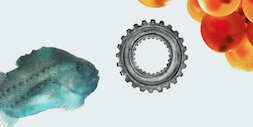Revenue at Sheffield-based Benchmark Holdings, the aquaculture biotechnology and food chain sustainability company, soared 148% to £109.4 million in the year to September 30, 2016, partly as a result of the acquisition of INVE Aquaculture in December 2015.
However, Benchmark made an operating loss of £20.5 million mainly due to increased investment in research and development and significant acquisition related expenses.
Benchmark said these items offset an improved operating performance in its animal health division and the results of the profitable and newly formed advanced animal nutrition division.
Benchmark shares rose almost 2% to 93p, giving it a current stock market value of roughly £485 million.
“Through the acquisition of INVE Aquaculture in December 2015, we now have a platform to serve customers in over 70 countries and a superb route to market in the southern hemisphere and its fast-growing markets,” said Benchmark CEO Malcolm Pye in his strategic review.
“Benchmark’s global distribution network in aquaculture, coupled with our comprehensive IP-rich technology portfolio, gives us an unrivalled offering.
“We remain focused on growing sales and market share in developing markets, including China, for our genetics and nutrition businesses, and are actively exploring routes to market and strategic relationships in those regions …
“Since Benchmark was founded in 2000 to set a new standard for sustainable living, the key issues at stake remain the same — food production is still the largest polluter and water/energy consumer on the planet.
“The food industry will have to evolve in order to cope with a huge increase in population to approximately 9.7 billion by 2050, requiring an increase in protein production of between 40% and 70%.
“An increase in the production and efficiencies of farmed land animals will meet some of this demand, however much of the gains in production have already been optimised for terrestrial animals, and wild marine fisheries are expected to meet maximum production capacity of 93 million tonnes by 2030.
“The World Bank in their report ‘Fish to 2030’ (2013), projected that aquaculture will continue to fill the supply-demand gap, and that by 2030 62% of fish for human consumption will come from this industry.
“We view considerable opportunity in the fact that the aquaculture industry is still relatively nascent, with significant room for improvement in terms of industrialisation and best practice.
“With 90% of the company now involved in aquaculture, Benchmark is at the forefront of the ‘Blue Revolution’.”
